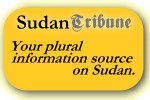U.S. accuses Sudan of persistent attacks in Darfur
By Evelyn Leopold
 UNITED NATIONS, Sept 2 (Reuters) – The United States accused Sudan on Thursday of playing a direct role in attacks against African villagers in Darfur and said the United Nations needed to be tougher in getting Khartoum to accept thousands of African monitors.
UNITED NATIONS, Sept 2 (Reuters) – The United States accused Sudan on Thursday of playing a direct role in attacks against African villagers in Darfur and said the United Nations needed to be tougher in getting Khartoum to accept thousands of African monitors.
U.S. Ambassador John Danforth challenged the United Nations’ failure to emphasize Sudan’s involvement in the crisis. And he criticized U.N. officials for suggesting that fielding African Union observers would be conditional on whether or not Sudan was able to protect its people in Darfur.
Danforth spoke after Jan Pronk, the U.N. envoy for Sudan, briefed the 15-member U.N. Security Council on his report, issued on Wednesday under Secretary-General Kofi Annan’s name.
He also called for increased African Union monitors and outlined a broader mandate to stop abuses.
Pronk cited Khartoum’s failure to stop marauding Arab militia, known as Janjaweed, from killing, raping and attacking African civilians in an 18-month terror campaign over arable farm land and other issues.
But he said Sudan had made progress in about 10 areas in stemming the crisis that has displaced over 1 million people.
“The fact of the matter is that the Government of Sudan has been directly involved in attacks on villages,” Danforth said.
“If the job of providing security is provided exclusively by people who have been dropping bombs on the people of Darfur, the people of Darfur are going to say, ‘what kind of protection is this,'” Danforth said.
The 53-member African Union now has some 80 monitors and 300 troops to protect them in Darfur to report on a fragile cease-fire between African rebels and government forces. The United Nations has proposed about 3,000 AU military observers and troops and another 1,100 police to observe all abuses.
CALL FOR AU MORE MONITORS
Danforth said he had recently spoken to Sudanese President Omar Hassan al-Bashir, who had refused to accept 3,000 monitors. But Sudan’s U.N. ambassador, Elfitah Erwa told reporters there was no problem on increasing the force.
“I have no problem with as many troops as needed as long as it is the same mandate,” he said. But he was unclear whether the duties Pronk outlined were acceptable.
Pronk said the African Union should go beyond observing a cease-fire. It should monitor, investigate and mediate all aspects of conflict in Darfur and “be on the spot” 24 hours a day, including in camps for uprooted villagers.
But Pronk touched only lightly on government participation in the attacks and said Khartoum should ask for help if it is “unable to protect its citizens by itself.”
Danforth said 25 percent of the refugees surveyed recently by U.S. officials in Chad reported they had been “attacked exclusively” by the Sudanese military. Another 50 percent said the attacks came from the government working with the militia.
The 15-nation council threatened on July 30 to consider imposing unspecified sanctions on Sudan if it failed to disarm and prosecute the Janjaweed. But no action is expected soon, as the U.N. report made clear that ending the crisis in Darfur could not be accomplished in a month.
Danforth said sanctions were not going to turn into a “pumpkin” and go away. But so far only European nations like Britain, France and Germany, support the United States.
Danforth criticized Pronk for not mentioning an air attack by Khartoum forces on Aug. 26. Pronk had noted the attack against two villages in his written rather than oral report.
Erwa said the incident was self-defense from a rebel attack and that the United States knew this.
